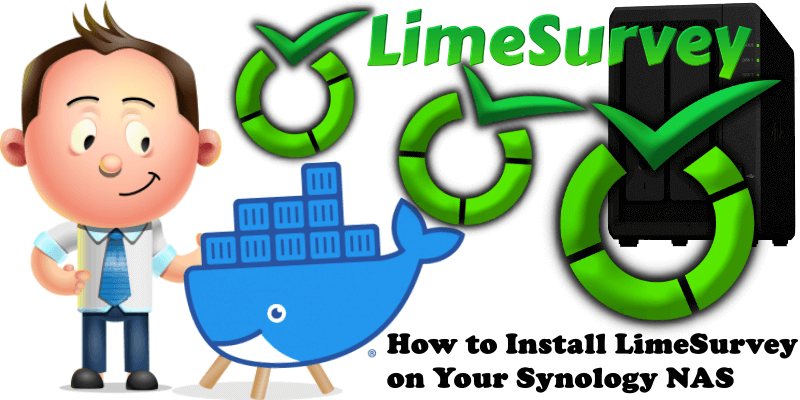
LimeSurvey is the simple, quick and anonymous online survey tool that’s bursting with juicy insights. Calling students, professionals and enterprises: design a survey and get the best insights, it’s free and as easy as squeezing a lime. Create your personalized online survey now! In this step by step guide I will show you how to install LimeSurvey on your Synology NAS using Docker & Portainer.
STEP 1
Please Support My work by Making a Donation.
STEP 2
Install Portainer using my step by step guide. If you already have Portainer installed on your Synology NAS, skip this STEP. Attention: Make sure you have installed the latest Portainer version.
STEP 3
Make sure you have a synology.me Wildcard Certificate. Follow my guide to get a Wildcard Certificate. If you already have a synology.me Wildcard certificate, skip this STEP.
STEP 4
Go to Control Panel / Login Portal / Advanced Tab / click Reverse Proxy. Follow the instructions in the image below.
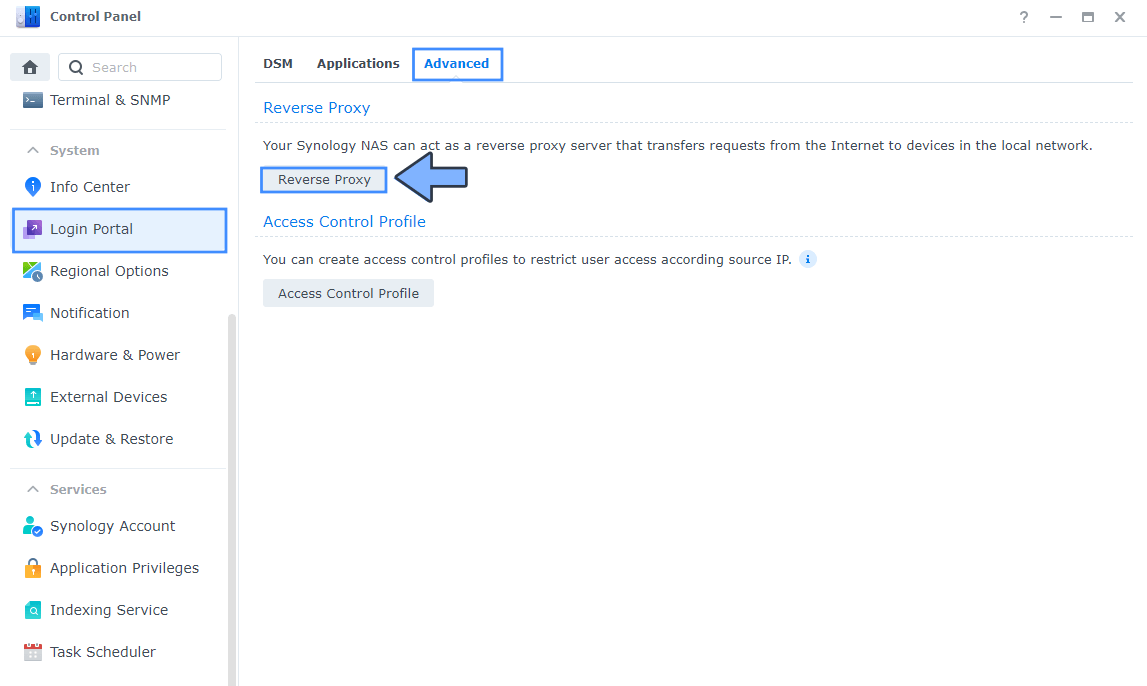
STEP 5
Now click the “Create” button. Follow the instructions in the image below.
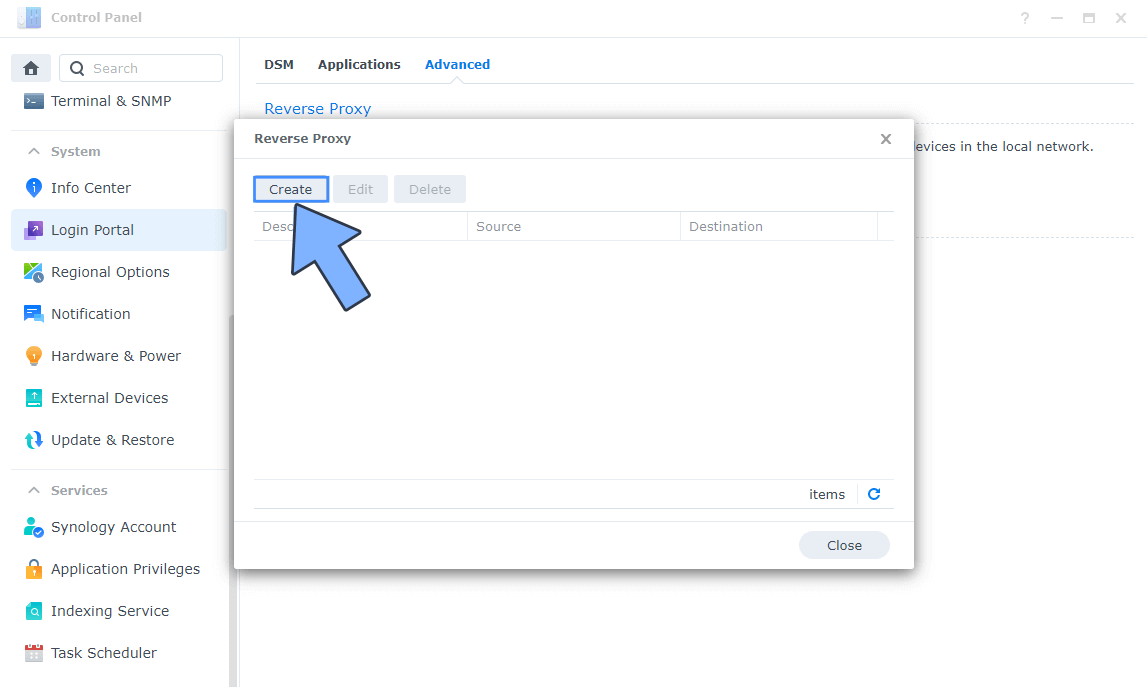
STEP 6
After you click the Create button, the window below will open. Follow the instructions in the image below.
On the General area, set the Reverse Proxy Name description: type in LimeSurvey. After that, add the following instructions:
Source:
Protocol: HTTPS
Hostname: limesurvey.yourname.synology.me
Port: 443
Check Enable HSTS
Destination:
Protocol: HTTP
Hostname: localhost
Port: 8785
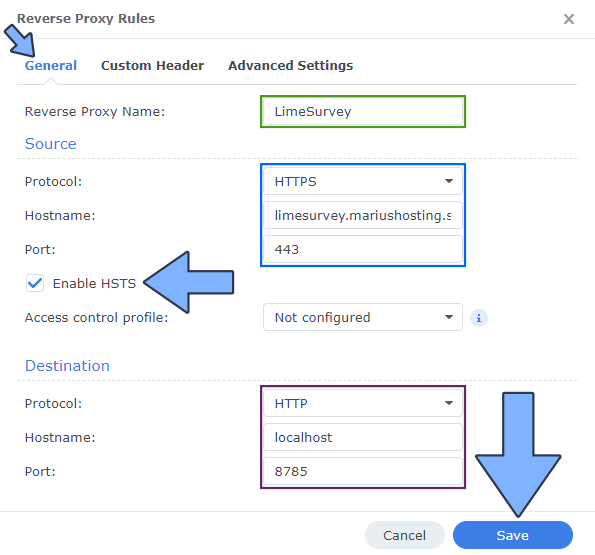
STEP 7
On the Reverse Proxy Rules, click the Custom Header tab. Click Create and then, from the drop-down menu, click WebSocket. After you click on WebSocket, two Header Names and two Values will be automatically added. Click Save. Follow the instructions in the image below.

STEP 8
Go to Control Panel / Network / Connectivity tab/ Check Enable HTTP/2 then click Apply. Follow the instructions in the image below.
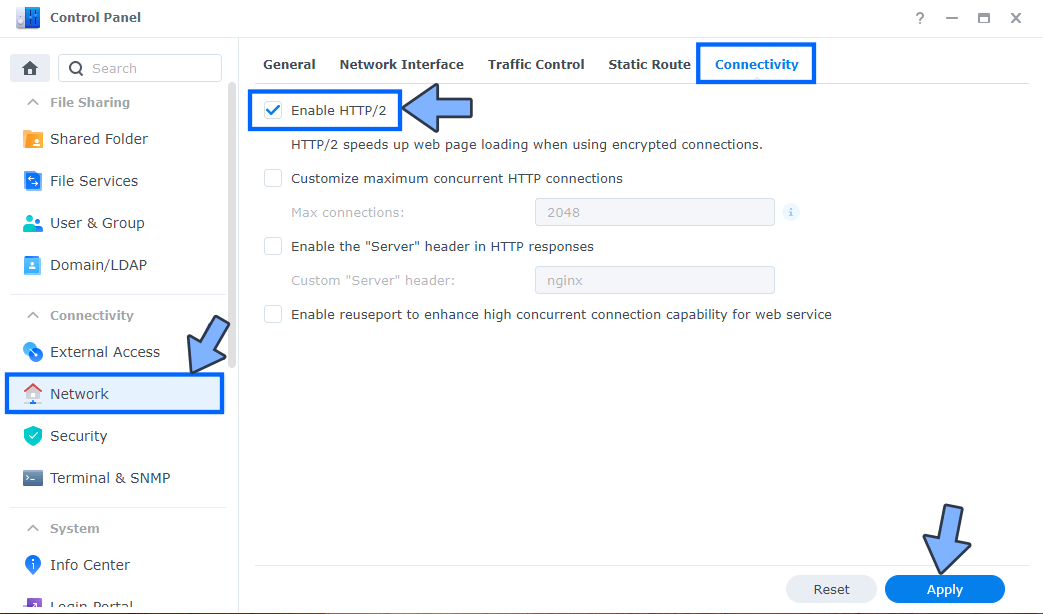
STEP 9
Go to Control Panel / Security / Advanced tab/ Check Enable HTTP Compression then click Apply. Follow the instructions in the image below.
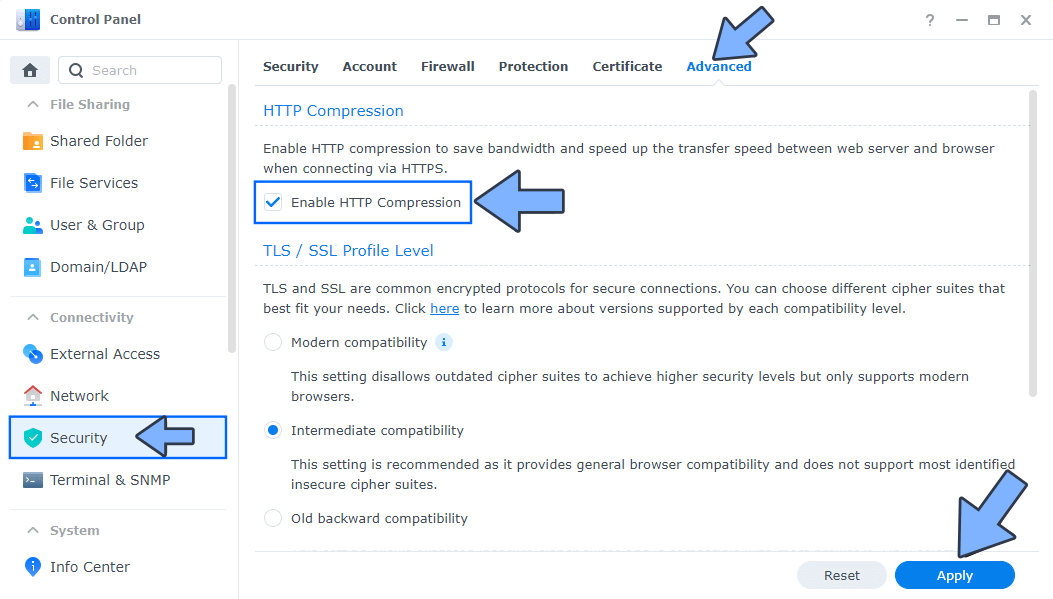
STEP 10
Go to File Station and open the docker folder. Inside the docker folder, create one new folder and name it limesurvey. Follow the instructions in the image below.
Note: Be careful to enter only lowercase, not uppercase letters.
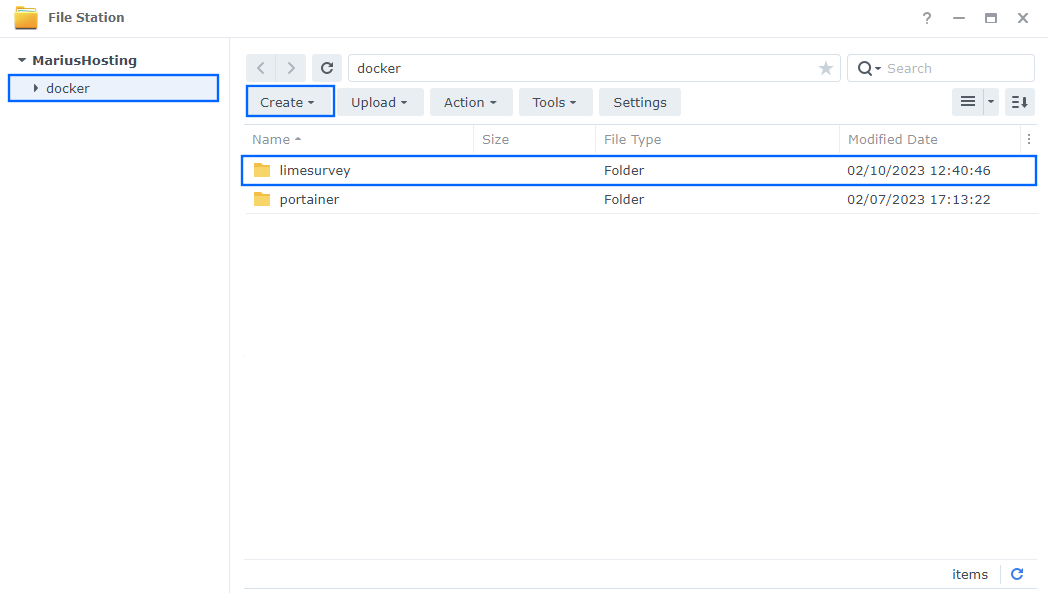
STEP 11
Now create five new folders inside the limesurvey folder that you created at STEP 10 and name them config, db, plugins, upload, sessions. Follow the instructions in the image below.
Note: Be careful to enter only lowercase, not uppercase letters.
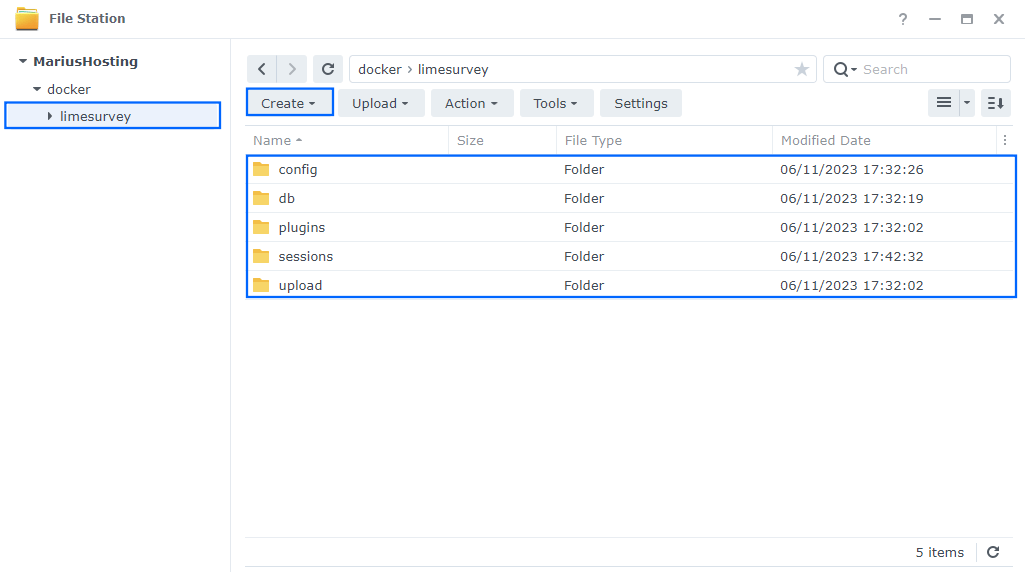
STEP 12
Log into Portainer using your username and password. On the left sidebar in Portainer, click on Home then Live connect. Follow the instructions in the image below.

On the left sidebar in Portainer, click on Stacks then + Add stack. Follow the instructions in the image below.

STEP 13
In the Name field type in limesurvey. Follow the instructions in the image below.
services:
limesurvey:
image: acspri/limesurvey
container_name: Limesurvey
healthcheck:
test: curl -f http://localhost:80/ || exit 1
ports:
- 8785:80
environment:
LIMESURVEY_ADMIN_USER: marius
LIMESURVEY_ADMIN_PASSWORD: mariushosting
LIMESURVEY_ADMIN_NAME: Lixandru Marius Bogdan
LIMESURVEY_ADMIN_EMAIL: Your-own-email-address
LIMESURVEY_DB_HOST: limesurvey
LIMESURVEY_DB_NAME: limesurvey
LIMESURVEY_DB_USER: limesurvey
LIMESURVEY_DB_PASSWORD: limesurvey
TZ: Europe/Bucharest
BASE_URL: https://limesurvey.yourname.synology.me
PUBLIC_URL: https://limesurvey.yourname.synology.me
volumes:
- /volume1/docker/limesurvey/plugins:/var/www/html/plugins:rw
- /volume1/docker/limesurvey/upload:/var/www/html/upload:rw
- /volume1/docker/limesurvey/config:/var/www/html/application/config:rw
- /volume1/docker/limesurvey/sessions:/var/lime/sessions:rw
depends_on:
db:
condition: service_started
db:
image: mariadb:11.8-noble #LTS Long Time Support Until October 15, 2033.
container_name: Limesurvey-DB
hostname: limesurvey
environment:
MYSQL_DATABASE: limesurvey
MYSQL_USER: limesurvey
MYSQL_PASSWORD: limesurvey
MYSQL_ROOT_PASSWORD: rootpass
TZ: Europe/Bucharest
volumes:
- /volume1/docker/limesurvey/db:/var/lib/mysql:rw
restart: on-failure:5
Note: Before you paste the code above in the Web editor area below, change the value for LIMESURVEY_ADMIN_USER and add your own name. marius is an example for an admin name. You have to insert your own name.
Note: Before you paste the code above in the Web editor area below, change the value for LIMESURVEY_ADMIN_PASSWORD and add your own password. mariushosting is an example for a password. You have to insert your own password.
Note: Before you paste the code above in the Web editor area below, change the value for LIMESURVEY_ADMIN_NAME and add your full name. Lixandru Marius Bogdan is an example for a full name. You have to insert your own full name.
Note: Before you paste the code above in the Web editor area below, change the value for LIMESURVEY_ADMIN_EMAIL and add your own email.
Note: Before you paste the code above in the Web editor area below, change the value for TZ. (Select your current Time Zone from this list.)
Note: Before you paste the code above in the Web editor area below, change the value for BASE_URL and type in your own synology.me DDNS with https:// at the beginning that you have previously created at STEP 6.
Note: Before you paste the code above in the Web editor area below, change the value for PUBLIC_URL and type in your own synology.me DDNS with https:// at the beginning that you have previously created at STEP 6.
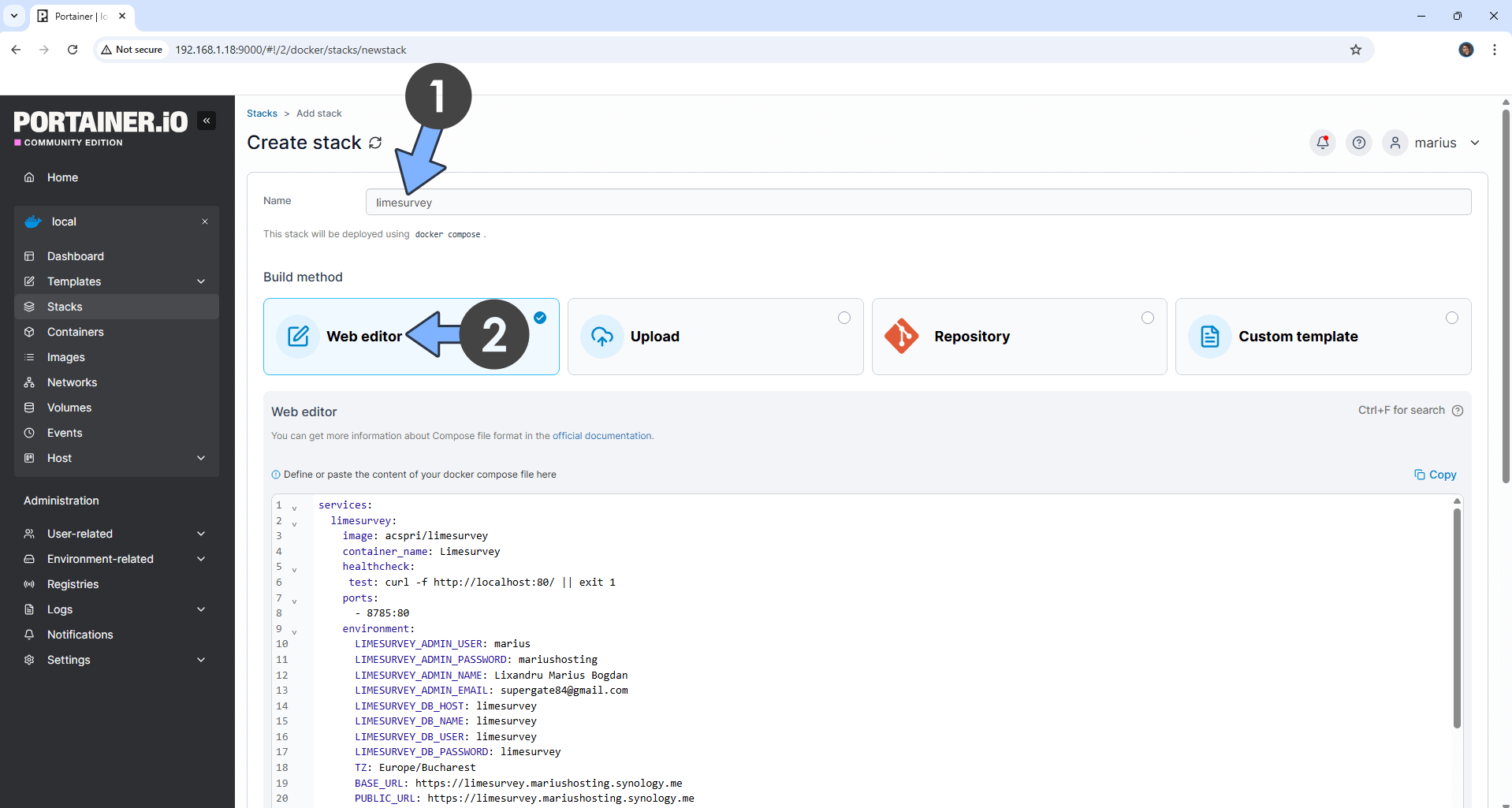
STEP 14
Scroll down on the page until you see a button named Deploy the stack. Click on it. Follow the instructions in the image below. The installation process can take up to a few minutes. It will depend on your Internet speed connection.
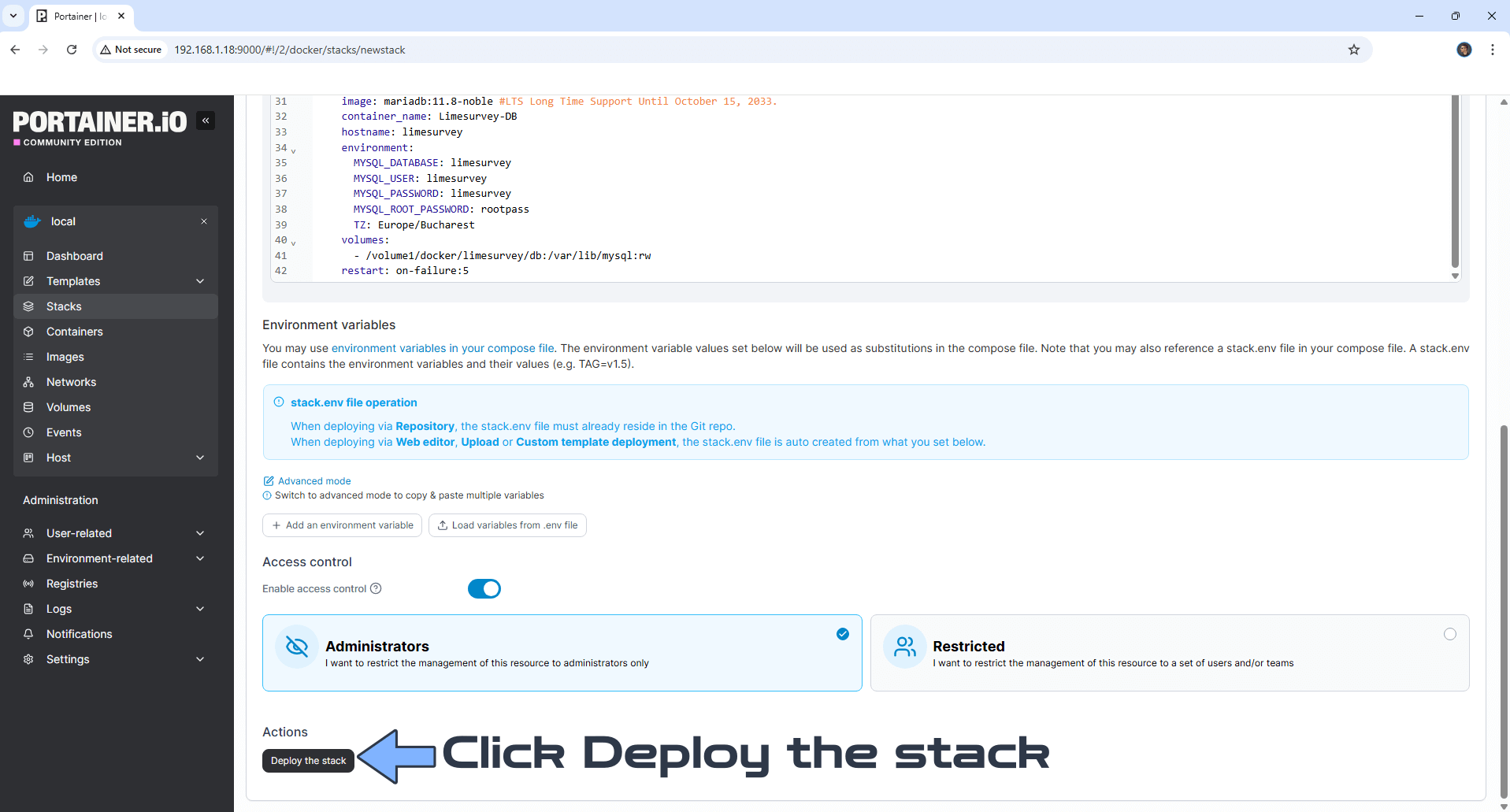
STEP 15
If everything goes right, you will see the following message at the top right of your screen: “Success Stack successfully deployed“.

STEP 16
🟢Please Support My work by Making a Donation. Almost 99,9% of the people that install something using my guides forget to support my work, or just ignore STEP 1. I’ve been very honest about this aspect of my work since the beginning: I don’t run any ADS, I don’t require subscriptions, paid or otherwise, I don’t collect IPs, emails, and I don’t have any referral links from Amazon or other merchants. I also don’t have any POP-UPs or COOKIES. I have repeatedly been told over the years how much I have contributed to the community. It’s something I love doing and have been honest about my passion since the beginning. But I also Need The Community to Support me Back to be able to continue doing this work.
STEP 17
Now open your browser and type in your HTTPS/SSL certificate like this https://limesurvey.yourname.synology.me/admin In my case it’s https://limesurvey.mariushosting.synology.me/admin If everything goes right, you will see the LimeSurvey login page. Type in your own Username and Password that you have previously created at STEP 13 then click Log in. Follow the instructions in the image below. Note: If you forget to add /admin after your synology.me DDNS, you will not be able to Log in.
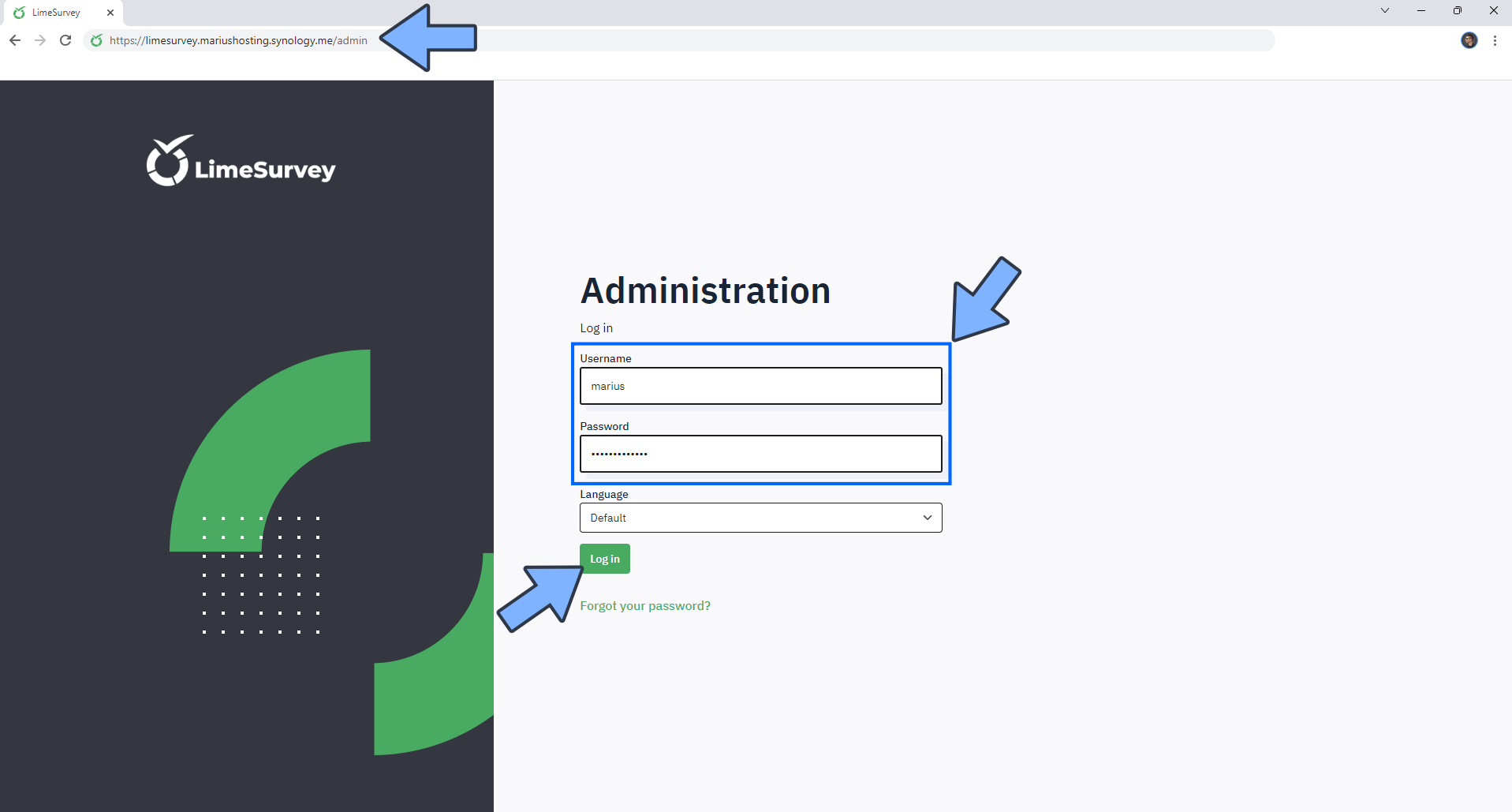
STEP 18
Click Close. Follow the instructions in the image below.
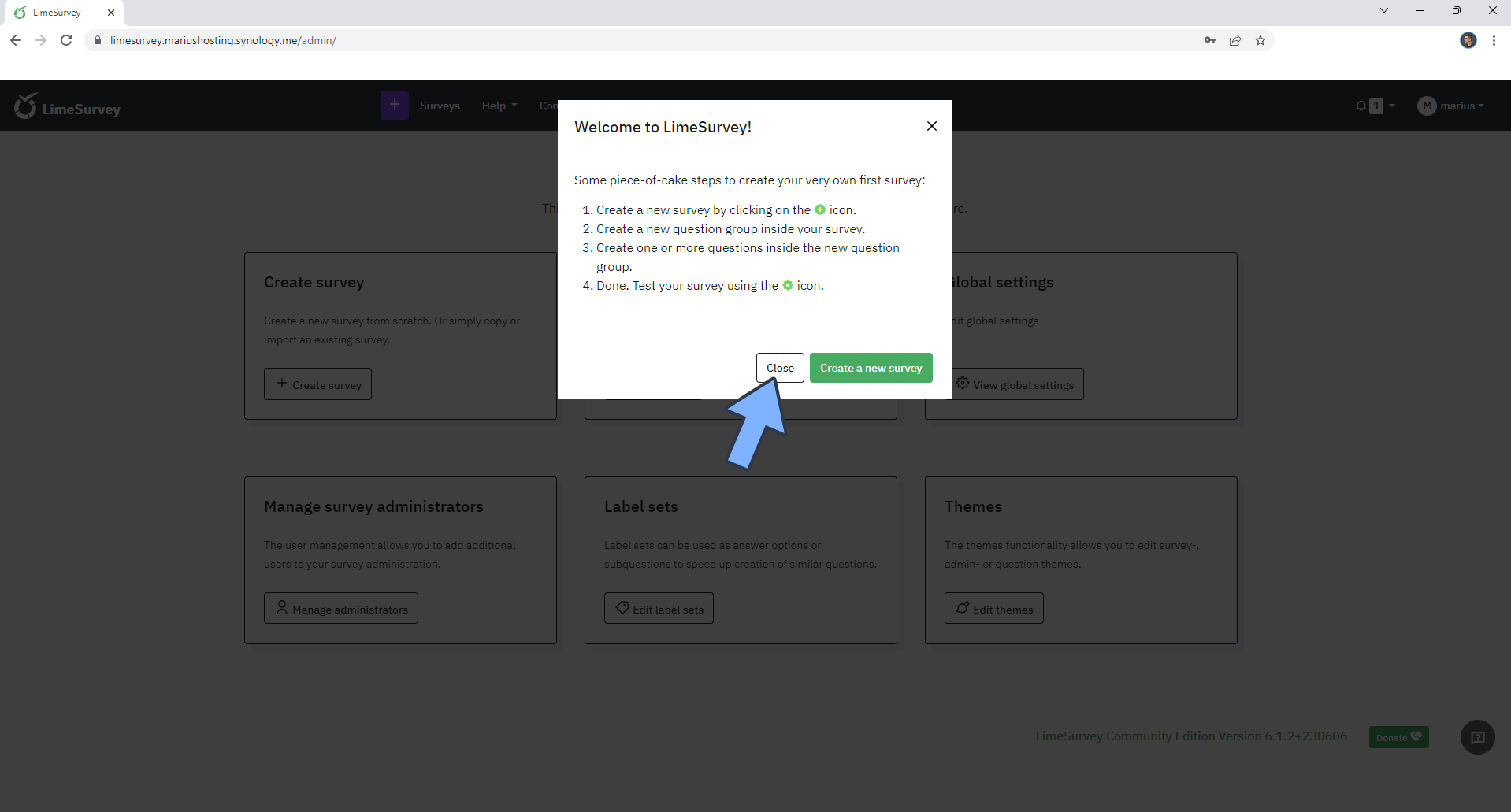
STEP 19
Click Close. Follow the instructions in the image below.
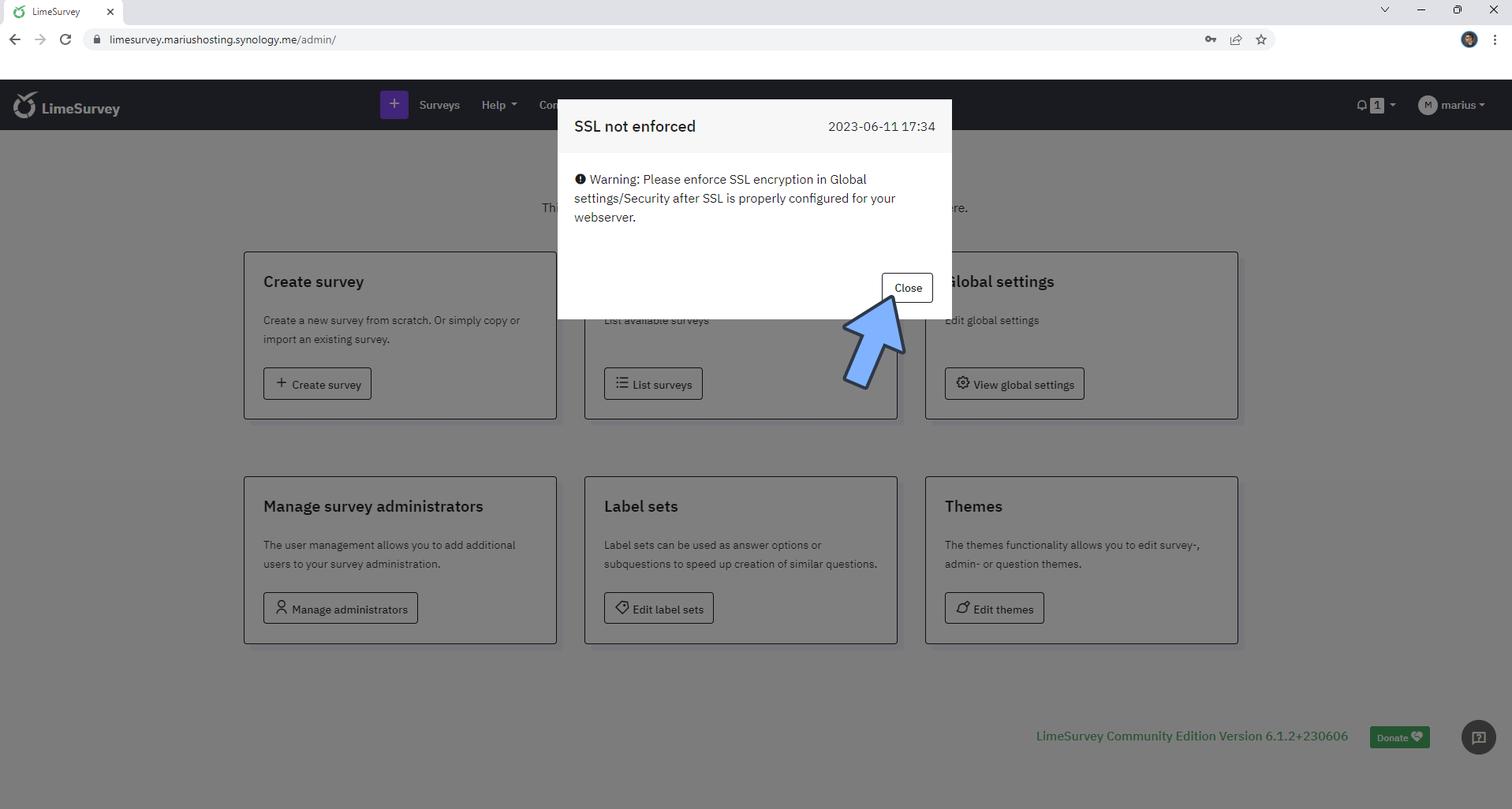
STEP 20
Enforce HTTPS/SSL. Click the Configuration tab then Global. Follow the instructions in the image below.
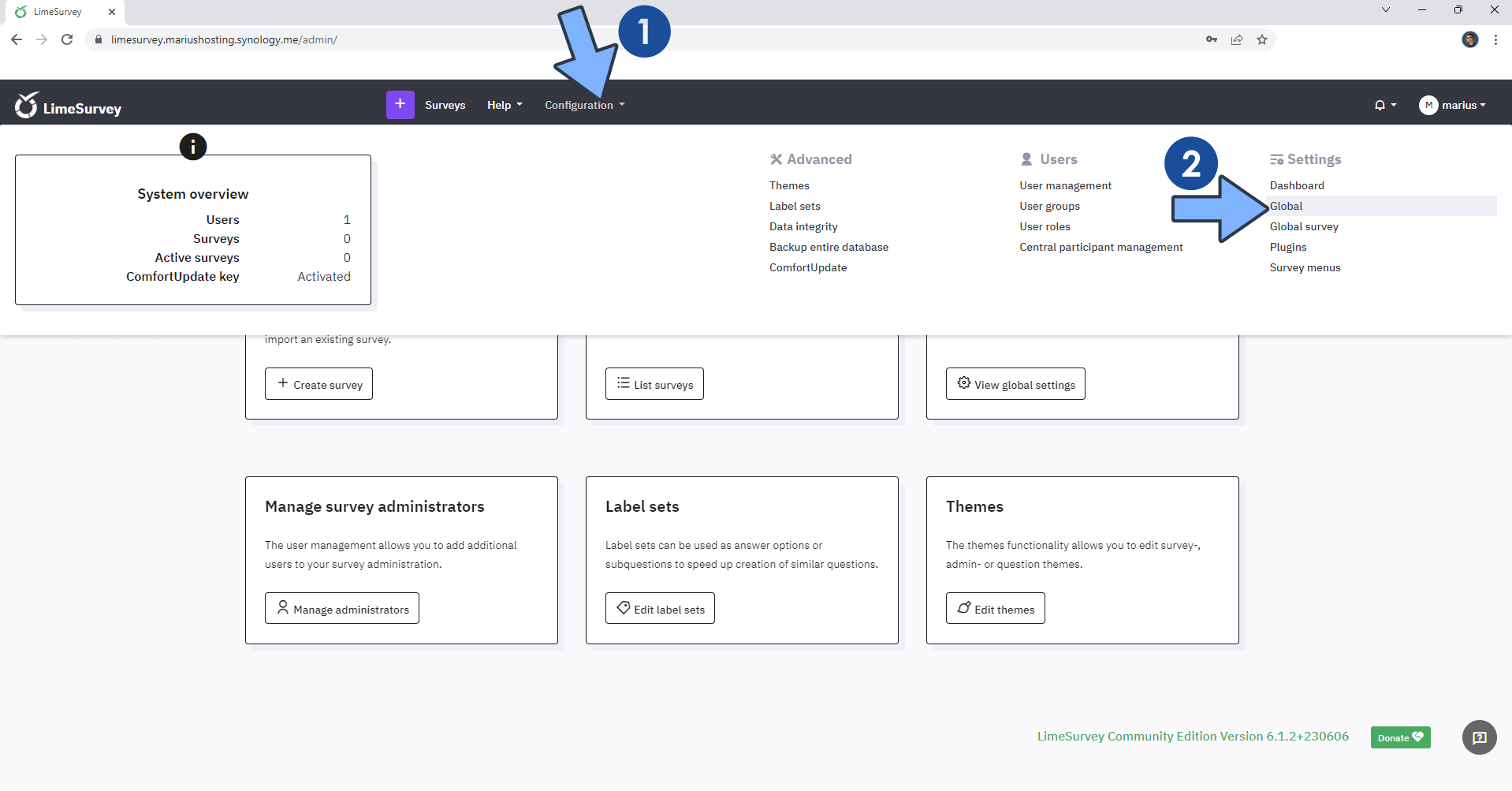
STEP 21
Click the Security tab then choose On to Force HTTPS. Click Save. Follow the instructions in the image below.
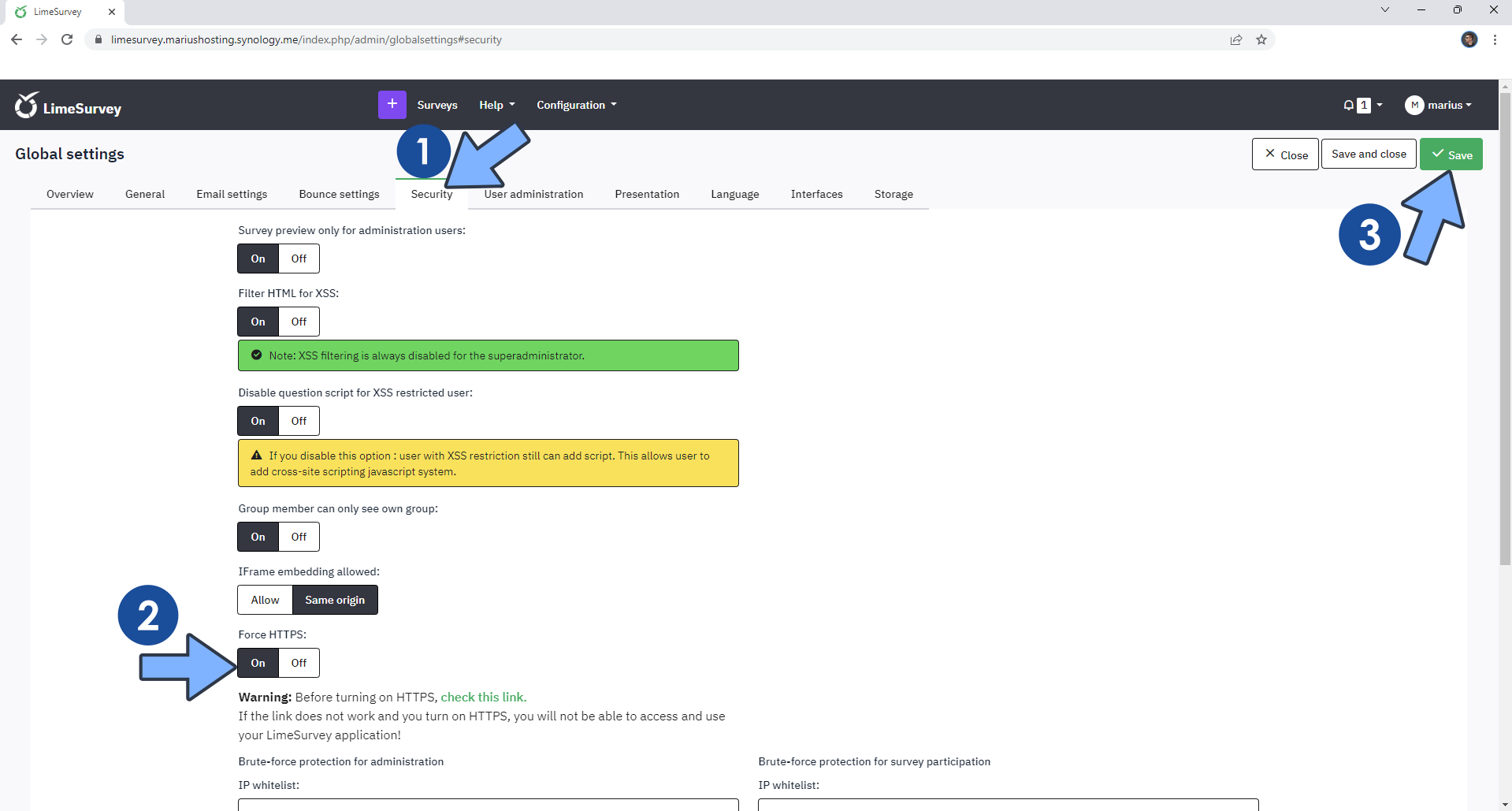
STEP 22
Follow my step by step guide on how to activate SMTP for your Gmail account. This step is mandatory. Note: If you don’t want to use the easiest way for SMTP with Google and you already have SMTP details from your own Mail Server, you can just skip this STEP and use your personalized email SMTP details instead.
STEP 23
Click the Email settings tab. Add the details below, then click Save. Follow the instructions in the image below.
Default site admin email: Type in your own Gmail address.
Administrator name: Type in your own Administrator name.
Email Method: Choose SMTP.
SMTP host: smtp.gmail.com
SMTP username: Type in your own Gmail address.
SMTP password: Type in your own Gmail App Password / STEP 22.
SMTP encryption: Choose StartTLS.
SMTP encryption type: TLS
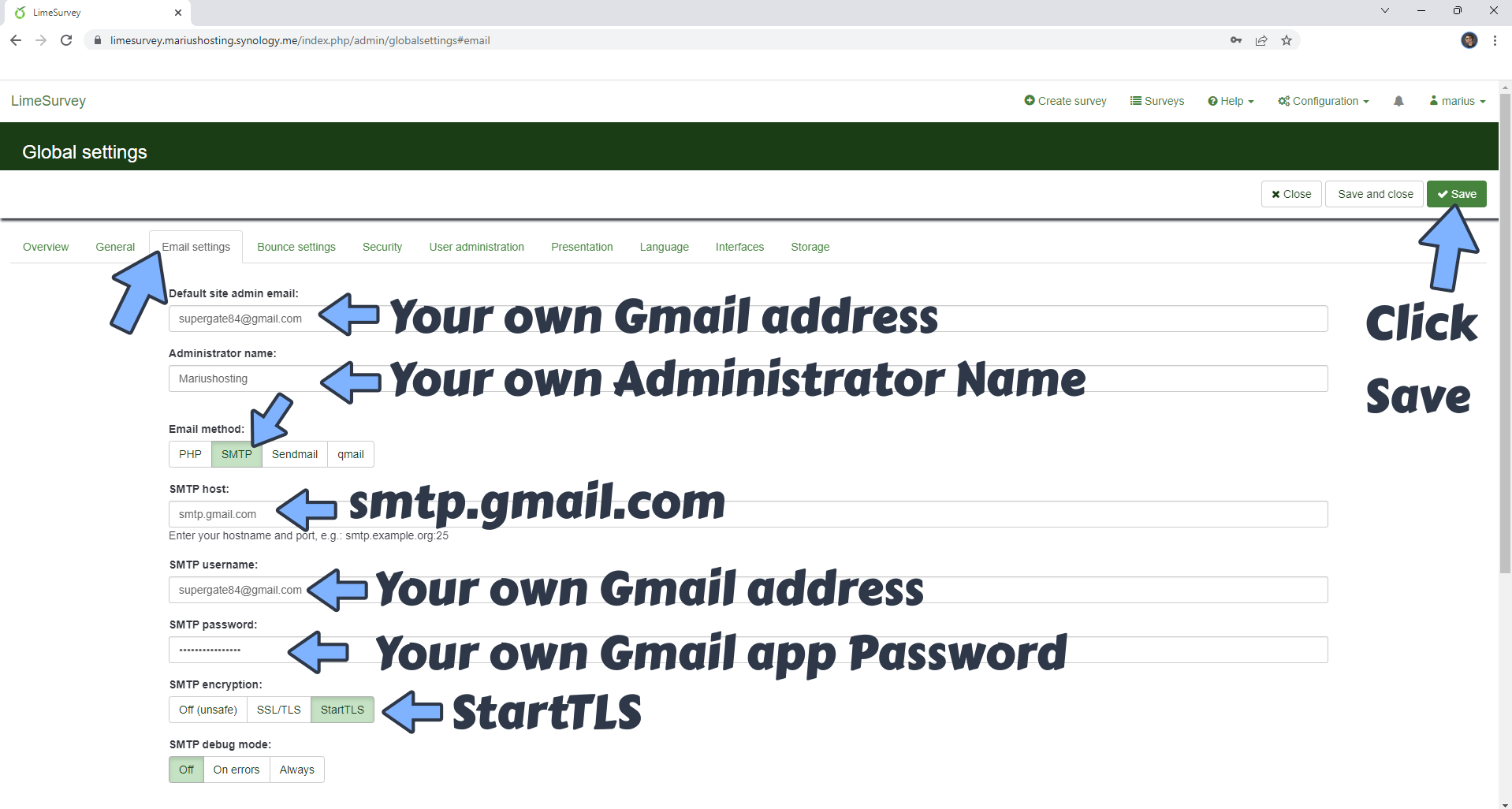
STEP 24
After you Save the settings at STEP 23, click on the Bounce settings tab right after the Email Settings tab and add your own email in this area too.
STEP 25
Scroll down the page a little bit, then click Send email. Follow the instructions in the image below.
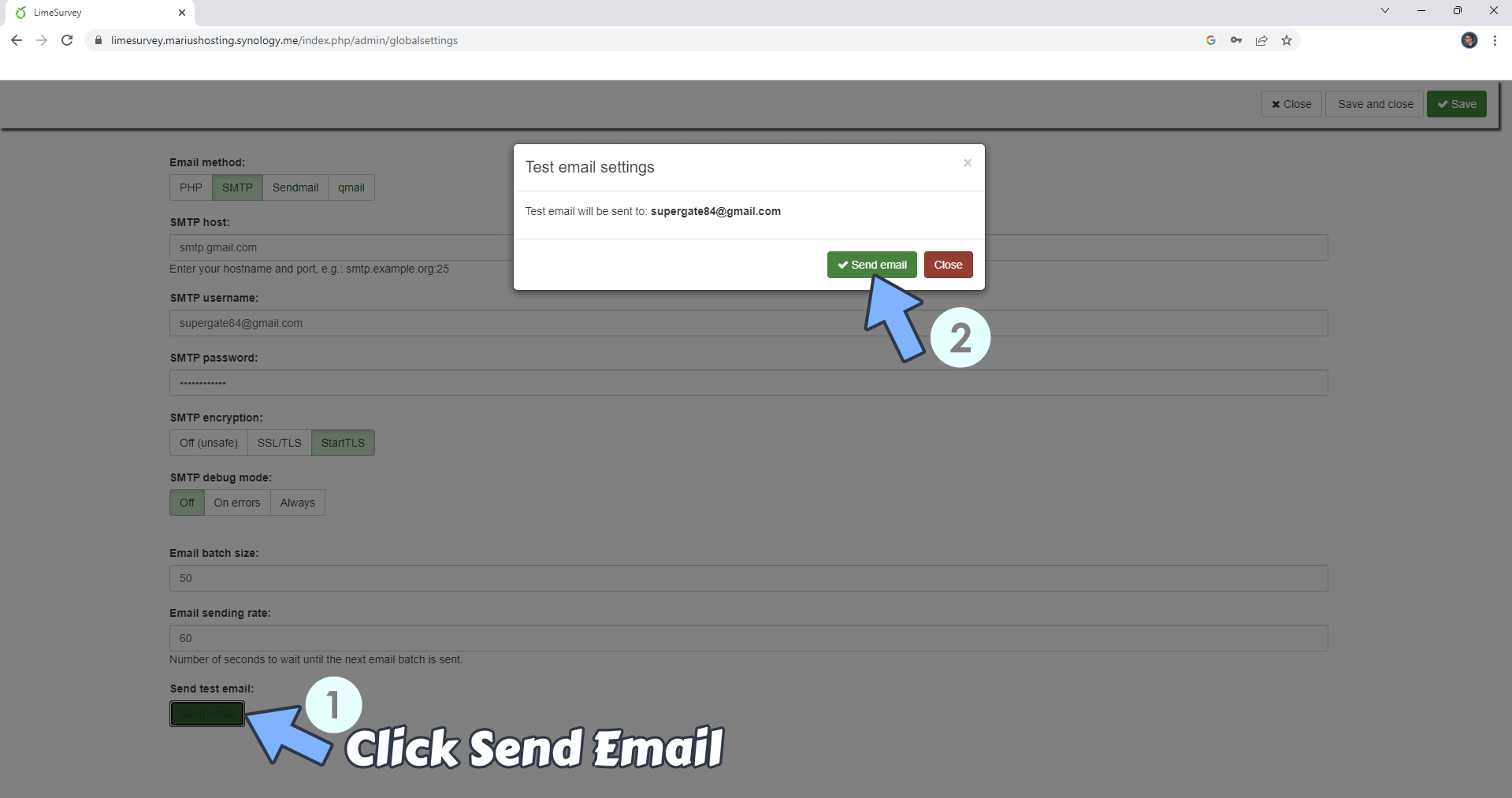
STEP 26
Check your email.
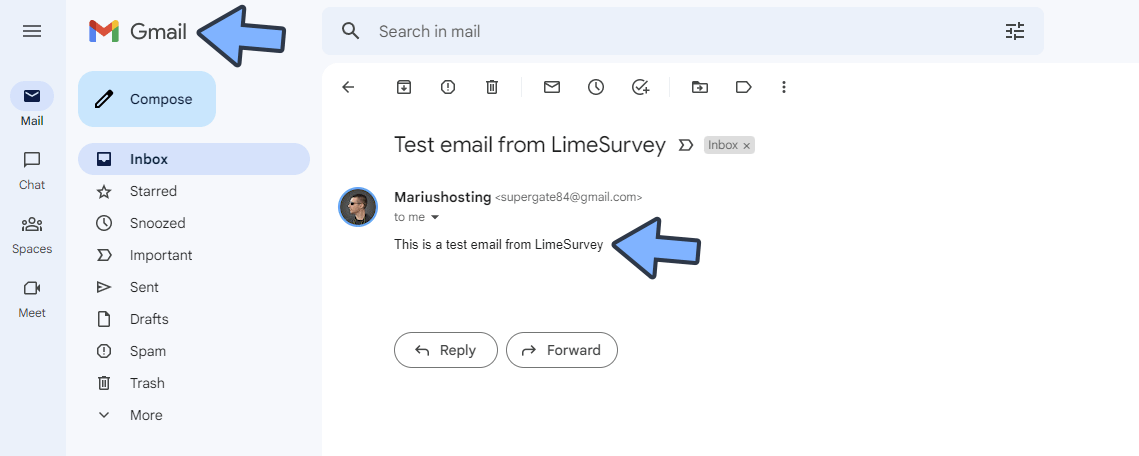
STEP 27
Your LimeSurvey dashboard at a glance!
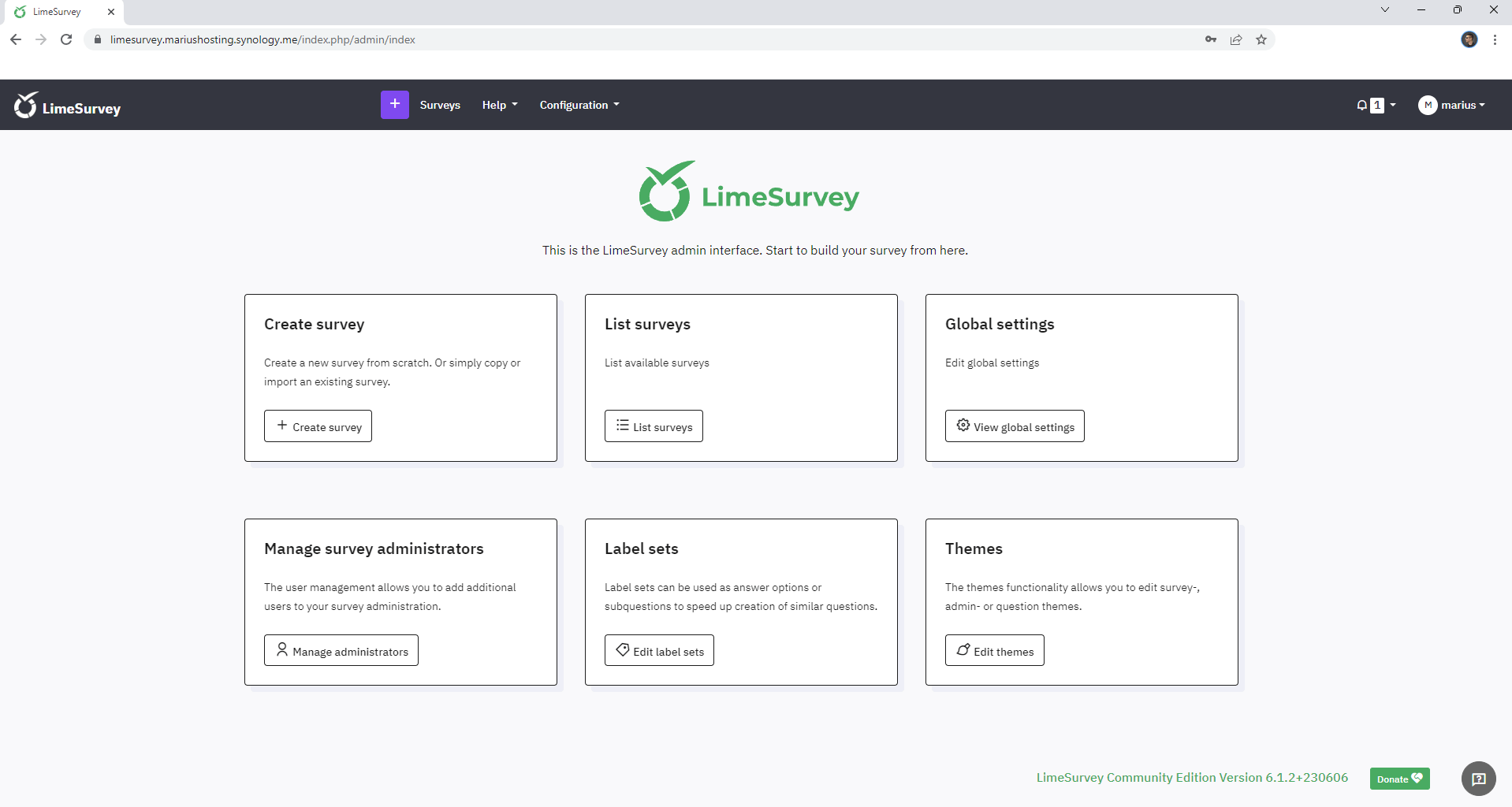
Enjoy LimeSurvey!
If you encounter issues by using this container, make sure to check out the Common Docker issues article.
Note: Can I run Docker on my Synology NAS? See the supported models.
Note: How to Back Up Docker Containers on your Synology NAS.
Note: Find out how to update the LimeSurvey container with the latest image.
Note: How to Free Disk Space on Your NAS if You Run Docker.
Note: How to Schedule Start & Stop For Docker Containers.
Note: How to Activate Email Notifications.
Note: How to Add Access Control Profile on Your NAS.
Note: How to Change Docker Containers Restart Policy.
Note: How to Use Docker Containers With VPN.
Note: Convert Docker Run Into Docker Compose.
Note: How to Clean Docker.
Note: How to Clean Docker Automatically.
Note: Best Practices When Using Docker and DDNS.
Note: Some Docker Containers Need WebSocket.
Note: Find out the Best NAS Models For Docker.
Note: Activate Gmail SMTP For Docker Containers.
This post was updated on Saturday / February 28th, 2026 at 2:21 PM
